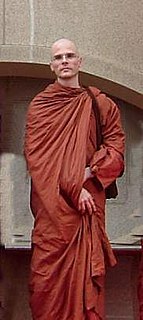A Quote by Eric Hoffer
The weak are not a noble breed. Their sublime deeds of faith, daring, and self-sacrifice usually spring from questionable motives. The weak hate not wickedness but weakness; and one instance of their hatred of weakness is hatred of self. All the passionate pursuits of the weak are in some degree a striving to escape, blur, or disguise an unwanted self. It is a striving shot through with malice, envy, self-deception, and a host of petty impulses; yet it often culminates in superb achievements.
Quote Topics
Achievements
Blur
Breed
Daring
Deception
Deeds
Degree
Disguise
Envy
Escape
Faith
Hate
Hatred
Host
Impulses
Instance
Malice
Motives
Noble
Often
Passionate
Petty
Questionable
Sacrifice
Self
Self-Deception
Self-Sacrifice
Shot
Some
Spring
Striving
Sublime
Superb
Through
Unwanted
Weak
Weakness
Wickedness
Related Quotes
It has often been said that power corrupts. But it is perhaps equally important to realize that weakness, too, corrupts. Power corrupts the few, while weakness corrupts the many. Hatred, malice, rudeness, intolerance, and suspicion are the faults of weakness. The resentment of the weak does not spring from any injustice done to them but from their sense of inadequacy and impotence. We cannot win the weak by sharing our wealth with them. They feel our generosity as oppression.
Bathsheba loved Troy in the way that only self-reliant women love when they abandon their self-reliance. When a strong woman recklessly throws away her strength she is worse than a weak woman who has never any strength to throw away. One source of her inadequacy is the novelty of the occasion. She has never had practice in making the best of such a condition. Weakness is doubly weak by being new.
There is no reaching the Self. If Self were to be reached, it would mean that the Self is not here and now but that it is yet to be obtained. What is got afresh will also be lost. So it will be impermanent. What is not permanent is not worth striving for. So I say the Self is not reached. You are the Self; you are already That.
It is weakness, says the Vedanta, which is the cause of all misery in this world. Weakness is the one cause of suffering. We become miserable because we are weak. We lie, steal, kill and commit other crimes, because we are weak. We die because we are weak. Where there is nothing to weaken us, there is no death nor sorrow. We are miserable through delusion. Give up the delusion and the whole thing vanishes.
What is the most fascinating kind of self-deception to me, and a kind that isn't necessarily unhealthy, is what Friedrich Nietzsche called "strategic self-deception." The kind of self-deception that you can engage in with your eyes wide open. You do it because you say, "There's things that I couldn't accomplish without this kind of self-deception."
Bacon's portraits are an interrogation on the limits of the self. Up to what degree of distortion does an individual still remain himself? To what degree of distortion does a beloved person still remain a beloved person? For how long does a cherished face growing remote through illness, through madness, through hatred, through death still remain recognizable? Where is the border beyond which a self ceases to be a self?
But if the strength ain't real, I recall thinking the very last thing that day, before I finally passed out, then the weakness sure enough is. Weakness is true and real. I used to accuse the kid of faking his weakness. But faking proves the weakness is real. Or you wouldn't be so weak as to fake it. No, you can't ever fake being weak. You can only fake being strong. . .
First comes Self-confidence, that is the foundation. Then comes Self-satisfaction, it is like the wall. Next comes self-sacrifice, it is like the roof. Finally the house is complete and the Indweller is installed inside; that is Self-realization. It starts with Self-confidence and it ends with realizing the Self.




































